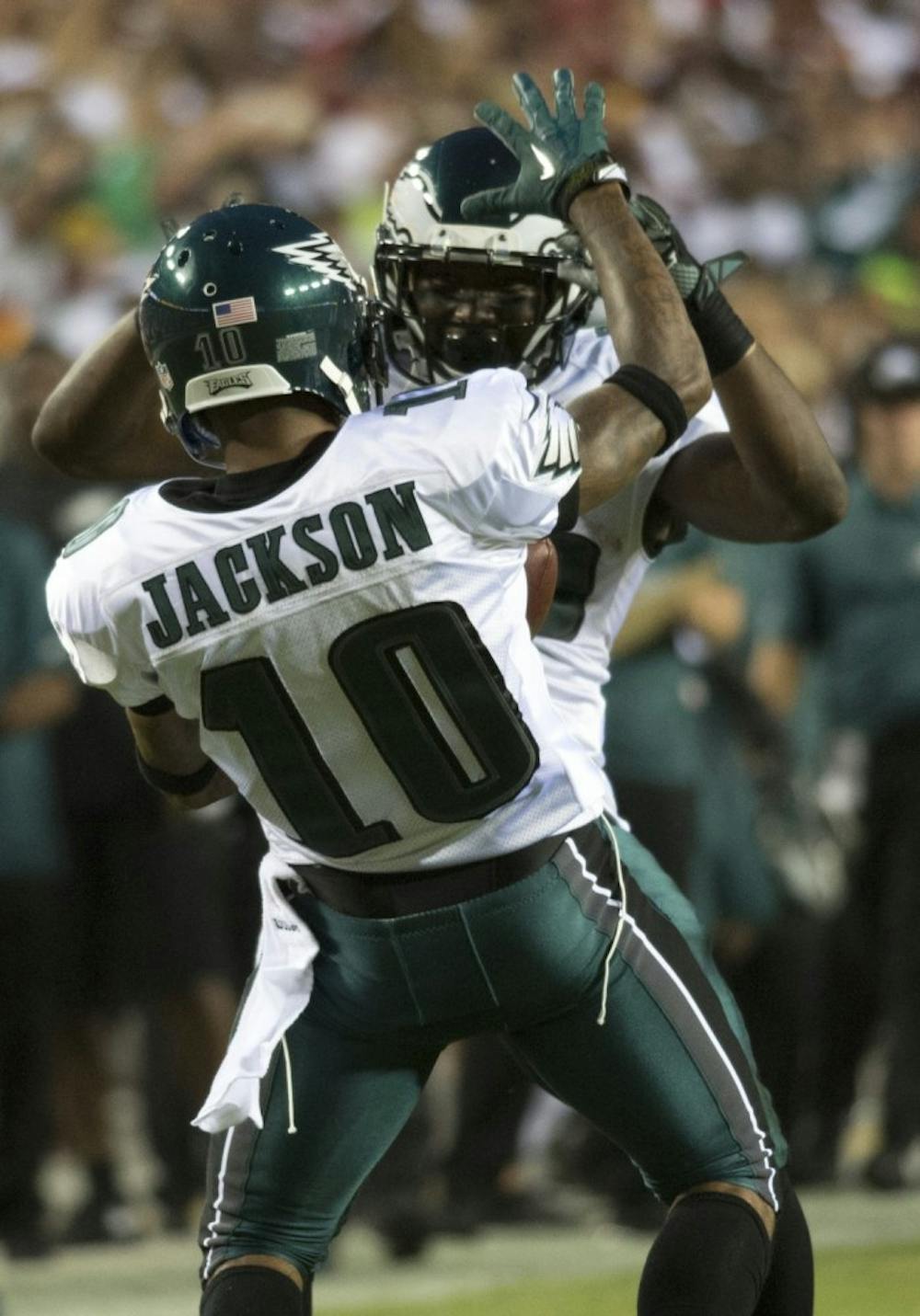It has been a few days since the NFL watch the Eagles blow by the Redskins defense at warp speed, and I have yet to catch my breath. Michael Vick and DeSean Jackson rekindled their high-flying relationship they had 2010. LeSean McCoy was freed from the shackles of Andy Reid’s aerial circus. The offensive line looked like a unit that doesn’t need to be addressed in next year’s draft yet again. And the first person I will give credit to for making this offense work is not first year head coach Chip Kelly, but Reid, who unknowingly assembled the perfect personnel to run this high-octane, spread option offense.
I assume Kelly knew this the moment Philadelphia became a realistic destination for his services. This gives him the upper hand over defensive coordinators trying to slow his Eagles down. The reason being is that Tom Brady and the New England Patriots last year were the closest comparison to Kelly’s teams at Oregon, but in reality they aren’t that similar. However, last season, the Patriots ran 1,191 plays from scrimmage in 2012. That’s nine short of the all-time NFL record.
Yes, the Patriots offense was fast, but their players weren’t.
Sorry Wes Welker, you aren’t going to blow by a secondary like Jackson is. No offense, Stevan Ridley, but McCoy is much tougher to handle one-on-one. It is hard to say no to you, Brady, but Vick is better known for making plays with his legs. You’re pretty good at that throwing thing, though.
Reid drafted or picked up these skill position stars in free agency, but he didn’t ignore the trenches. Evan Mathis is one of the most underappreciated guards in the league, and his speed allows for McCoy to have an alley to run through at a moment’s notice. The return of center Jason Kelce and all-pro tackle Jason Peters from injury has given the Eagles much-needed continuity. Tackle Lane Johnson, the first draft pick in the Kelly era, is a former tight end (just like Peters) who has experience in Oklahoma University’s up-tempo offense. The Eagles weakest unit last year has become their greatest strength, and Kelly’s game plan will allow them to use their athleticism to their advantage.
So the Eagles are fast. But how does that make their offense so effective? The entire purpose of a high-speed offense is to tire out a defense and prevent substitutions. Assignments are missed, gaps are unoccupied and coverages are busted because the defense doesn’t have the proper personnel and the players are focused on their stamina instead of the play itself. At some point or another, there will be wide-open space due to a defensive miscue. This is where the advantage of having McCoy, Jackson, Vick and Bryce Brown come in handy. The faster you can run, the more yards you’ll gain in open space. It’s easy to understand but frustrating to solve, even for the ones using it.
Running this offense to perfection gives Philadelphia the ability to make a comeback in any amount of time, but they won’t be able to sustain a lead if they are always running a two-minute drill. When the Eagles slowed down, they looked like last year’s incarnation of the team — an offensive line that allows too much pressure, a turnover-prone quarterback and easily sidetracked big-play threats are not the formula to win in January. The offense has to keep firing on all cylinders. And that means their signal caller has to put it all together.
Vick is the best and worst fit for the Eagles right now. He still has one of the best arms in the league and his legs still give coordinators trouble. As an athlete, Vick has the stamina and mentality to keep his foot on the pedal for the entire season. That’s just who he is. And as stated earlier, the hurry-up prevents defensive coordinators from implementing sub packages during the game; there is less Vick needs to read on the field since the defense has to stay in its base formation just to keep up.
However, Vick’s reckless abandon has plagued him with injuries during his career, which could come back to bite the Eagles later this season. Sprained ankles or bruised ribs take longer to heal the older the player is. Even if Vick stays healthy, what is the Eagles long-term upside with him at the helm? Vick isn’t a playoff regular because of how volatile his on-field performances are. How much better would the Eagles be with Teddy Bridgewater or Marcus Mariota for the next decade? Both are college stars who know how to operate a warp-speed offense better than most Pro Bowl signal callers. I’m not suggesting the Eagles should throw away their season, but they should seriously think about investing in a young quarterback before Vick declines. It could be in 2015, or it could be in six weeks. Kelly is undoubtedly taking a risk, yet for a man who is at the forefront of modern football innovation, it shouldn’t be that intimidating.
Suggesting Kelly is no more than a gimmick is short-sighted. His players endear themselves to him and he sets the trends in football instead of following them. Being one step ahead is being Bill Belichick, or Bill Walsh or Tom Landry. No, he’s not in that company yet. Not even close. But his debut on Monday Night Football, when he stunned last year’s trendiest team and Robert Griffin III, couldn’t have been much better.
I still haven’t caught my breath.


